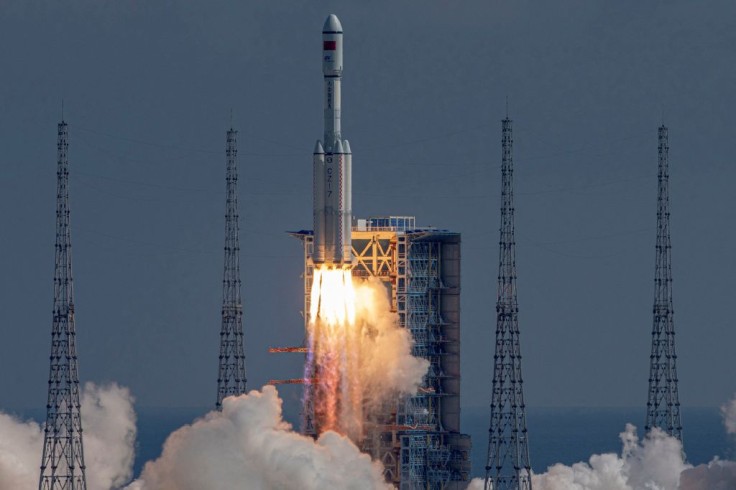Hug piece of China's Long March 5B rocket' debris has reentered Earth's atmosphere and crashed into the Indian Ocean on July 30.
The Chinese rocket reentered Earth after bringing the latest piece of the country's Tiangong space station to orbit on July 24, as per Space.com.
In a tweet, the US Space Command confirm that the Long March 5B reentered over the Indian Ocean at approximately 12:45 p.m. EDT.

China's Rocket Disposal Strategy is Reckless According to Critics
The Long March 5B was launched to space on July 24. The rocket was carrying a new module for China's under-construction Tiangong space station.
The Long March 5B is different from most modern rockets such as the SpaceX Falcon 9, which can be have a reignited engine to "complete a controlled atmospheric reentry," as per Engadget.
China's rocket cannot be controlled to a safe disposal shortly after launch because it "reached the orbit along with its payload." The rocket then stayed up in space until an atmospheric drag take it down in an uncontrolled manner.
Mission managers didn't do anything wrong. What is happened to the Long March 5B is part of the rocket's design. Since the big rocket doesn't burn up completely upon reentry to Earth's atmosphere, critics said that this disposal strategy is reckless, as per Space.com.
With the rocket's reentry last Saturday, NASA Administrator Bill Nelson criticized China for lack of transparency.
"The People's Republic of China did not share specific trajectory information as their Long March 5B rocket fell back to Earth," Nelson said on Twitter.
He added that all nations who ventured to space exploration should follow established best practices. China should have done their part to share information in advance to allow reliable predictions of potential debris impact risk.
Read Also: China Wants Its Next Rocket to be Reusable - Will It Be Used for Moon Missions?
Long March 5B to Fly to Space Again in October
Worry arises every time China launched a rocket because it is uncertain where the debris would land.
The crash of huge debris in the Indian Ocean is the third uncontrolled fall for a Long March 5B core stage as of today.
In May 2020, about 10 days after the rocket's was first launched, debris from the rocket's body fell back to Earth over West Africa. The remnants of a Long March 5B caused damage to some properties in the villages in the Ivory Coast.
In April 2021, during the rocket's second flight, which carried Tianhe, the core module of the Tiangong space station, body of Long March 5B reentered over the Arabian Peninsula. The mission dropped debris of the body over the Indian Ocean.
According to astrophysicist and satellite tracker Jonathan McDowell, of the Harvard-Smithsonian Center for Astrophysics, China is slowly adopting the norms of other countries in space.
McDowell also said that it also important to take note that China is some sort of a latecomer to space activities, but they're catching up.
There will be two more Long March 5B launches in the future. The rocket will bring the third and final part of Tiangong to space in October, while next year, it will carry the country's Xuntian space telescope, as per Engadget.









